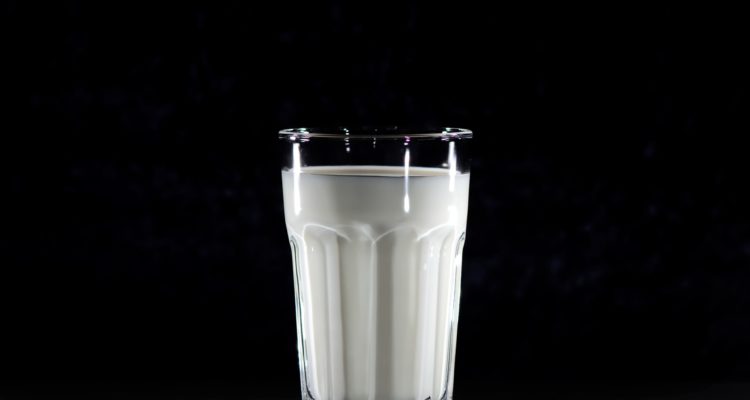◊ By Dr D K Sadana
(Read dairyman, Gajendra Singh Yadav’s response here.)
Visit ORGANIC SHOP by Pure & Eco India
Milk is nutrient-rich and contains a wide array of vitamins, minerals, protein, healthy fats and antioxidants. Several studies have demonstrated, time and again, the numerous benefits of milk and related products.
In recent years, however, milk consumption has become a hotly debated topic in the world of nutrition, with questions being raised about whether drinking milk is really healthy or, in fact, harmful. One of the key factors behind this controversy is the recently emerged distinction between A1 and A2 milk.
“The protein in A1 milk, when digested, breaks down into smaller proteins, one of which is toxic and is known as BCM-7. Studies have linked BCM-7, an opioid, to blood pressure, heart problems, autism and even SIDS (Sudden Infant Death Syndrome) in children.”
HARMFUL EFFECTS OF A1 MILK
Currently, A2 milk is being marketed as a healthier choice than regular milk (A1). The milk generally available in the market is almost always a mix of A1 and A2 milk. Structurally, a protein is just a long chain of amino acids.
The difference between A1 and A2 is very small—if the 67th position amino acid in beta-casein (a type of milk protein) in the milk is proline, the milk is A2, and if it is histidine, the milk is A1. But there’s a huge difference between A1 and A2 milk once the milk is digested. The protein in A1 milk, when digested, breaks down into smaller proteins (or peptides), one of which is toxic and is known as BCM-7 (Beta-casomorphin-7).
“Studies indicate that BCM-7 found in A1 milk can lead to diabetes. Infants are more susceptible as their gut wall is more porous, and therefore, they’re at greater risk of developing type 1 diabetes.”
BCM-7 is an opioid (produces morphine-like effects) by nature. It enters through the gut wall into the blood stream, and can cross the blood-brain barrier. Some studies indicate that it affects the pancreatic cells and reduces the secretion of insulin in the pancreas, thus resulting in diabetes. Infants are more susceptible to BCM-7, as their gut wall is more porous, and therefore, they’re at greater risk of developing type 1 diabetes.
Studies have also linked the presence of BCM-7 with thickening of blood vessel walls, which causes blood pressure and can also lead to heart problems. Furthermore, autism and SIDS (Sudden Infant Death Syndrome) have also been linked to BCM-7. One study revealed high levels of BCM-7 in the blood of infants who temporarily stopped breathing during sleep.
A test on rabbits demonstrated that consuming A1 beta-casein promoted fat buildup in injured blood vessels, which was much lower when the rabbits consumed A2 beta-casein instead. Experiments on rodents have shown that A1 beta-casein may significantly increase inflammation in the digestive system.
Although there are currently only a few clinical trials to prove the linkages, growing evidence does suggest that A1 beta-casein negatively impacts digestive function.
Studies also indicate that it is A1 milk rather than lactose that is responsible for lactose intolerance and a host of unpleasant stomach issues such as bloating, indigestion and diarrhoea. Many people suffering from lactose intolerance find it is much easier to digest A2 milk.
COWS THAT PRODUCE A2 MILK
Whether the milk is A1 or A2 depends on the breed of the cow. All the Indian indigenous breeds—also known as desi cow breeds—produce A2 milk.
On the other hand, foreign cow breeds such as the Holstein Friesian (imported into India from Europe some 60 years ago) and their crossbreds produce a mix of A1 and A2 milk.
Buffalo milk is entirely A2, but is less preferred due to the larger size of its fat globule. It also has fewer beneficial nutraceutical components like CLA (Conjugated Linoleic Acids) and Omega 3 fatty acids than the milk of desi cows.
A2 milk from desi cows is now becoming increasingly popular as awareness of its superior nutrient content is growing. If you suffer an aversion to drinking milk, definitely give A2 milk a try, as it is a much healthier alternative to the A1 variety and is a good option for the lactose intolerant.
ABOUT THE AUTHOR

The author is an animal breeder specialising in India’s indigenous cattle breeds, as well as, organic and natural farming. Having retired as head of the animal genetic resources division of the National Bureau of Animal Genetic Resources (NBAGR), he has worked in the field of indigenous livestock for over 30 years.



Which are the Brands giving A2 milk
There are hundreds of brands in India offering A2 milk. You need to contact those in your city.